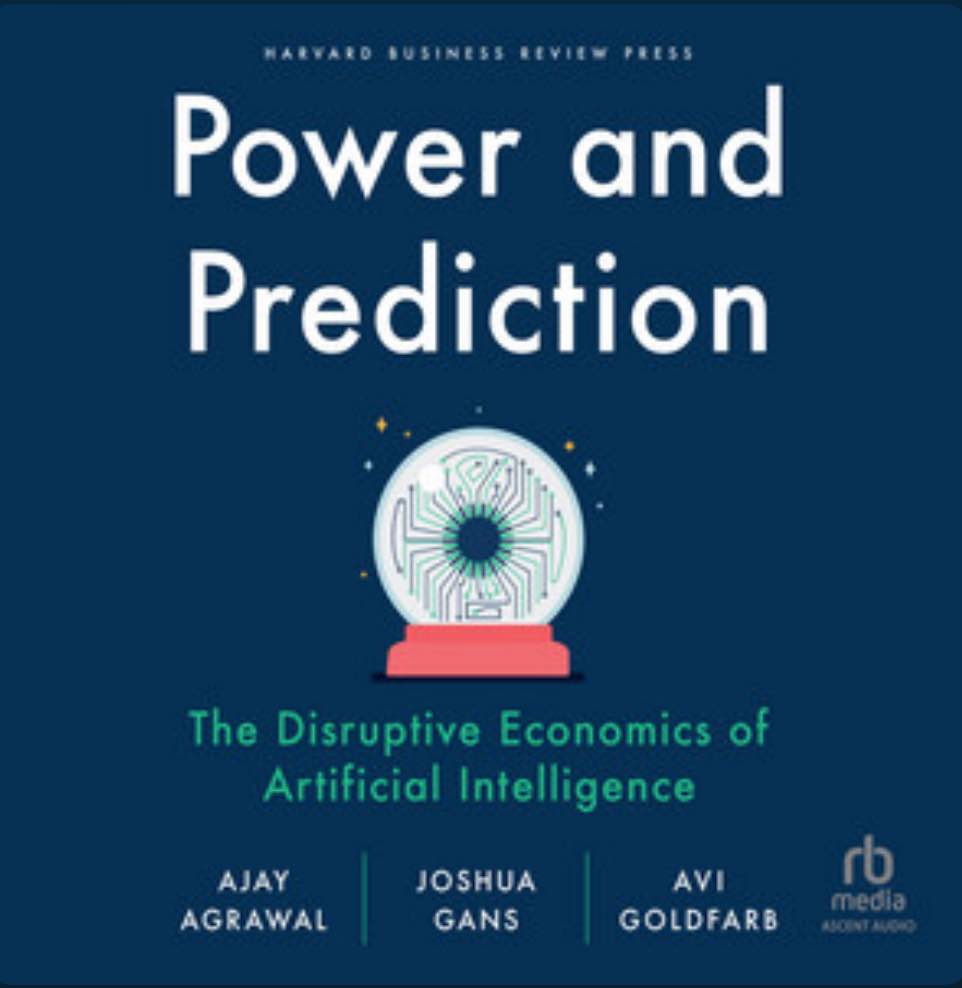Takeaways:
- point vs systemic shift. The book largely focuses on how AI will be used for systemic shifts. Those who embrace it, like those who embraced electricity over steam power, will have to reinvent their businesses from the ground up. They should do so by thinking about The core principles of their business and what’s a judgment and what’s a decision. They can become far more efficient by abandoning rules and procedures and instead focus on decisions. They can automate certain decisions using data.
- Those who go to market to collect data first have a huge advantage. It’s the reason Google has outperformed Bing for a decade - it gets better data and feedback and uses that to make the product more efficient. Data collection is essential to a great data product - not only the data you begin the project with, but the data that brings it to life.
- What will I do differently? I’ll try to think more systemically about how organizations I work in are operated by human judgment that can be automated. The book provides a framework for approaching such systemic shifts.
- I’m also interested to see what they’d write about today’s day and age, as this was published right as ChatGPT came out and is now changing a lot. That being said, I think the main principle of decomposing the business into its central parts still stands as the thesis of the book. There’s also a big difference between Generative AI and predictive AI (machine learning). Gen AI is now going to unlock a whole lot of applications, but the principles still remain the same.
2024-04-15
prediction va judgment.
Flywheel of AI. Feedback data is the most important.
Thinking in bets. →. Luck vs bad decision
Personalize weather forecasts. Get up earlier
Flint lead pipes. Political judgment stalled work
Prediction vs judgment systems. Need to create a new system to handle probabilities.
AI windfall - one sure gets more efficient and causes issues upstream
Algorithmic bias can be solved because it can be examined.
Who should decide? - Information - skills - Incentives - Coordination
Redesign the company from an AI systemic view: - judgment and decisions.
- Who sees what vs who decides what.
- Rules vs decisions.
2024-04-13
- power is scarcity. AI power?
- Those with power prevent system changes. But those who adopt systemic shifts will disrupt those who are stuck in the old ways.
- systemic shifts. Companies need to rethink their businesses around AI. What can change? What’s too prohibitive to change? How do regulations change?
2024-04-13
- airports: a decision. Security. Risk ca reward.
- Highest security is manually reviewing all things.
- Allow the machine to review things with some probability of missing a knife.
- Let everyone in.
- Cost: how much time people spend.
- Costs: a plane crashing into another building.
- Rules vs decisions.
- Rules are pre-determined or general decisions instead of making them personalized and relevant in the moment.
2024-04-12
- the between time. Lightbulb took 20 years before 50% of houses had it.
- ChatGPT
- Point solutions
- lower cost of power. No change to factory system
- Can improve a single procedure without changing the system which embeds it.
- Application
- Individual electric drives on each machine. Swappable. If one stops it doesn’t stop the others. Modularity the factory but still keep it the same layout.
- Can enable a single thing to do more things.
- Enables a new procedure without changing the system in which it’s embedded.
- System solutions → change how the system is designed → steam vs electricity. Exploit by decoupling power source from factory element. → layout the machine how it’s supposed to and get the power to where it is.
- Enables new procedures or changes existing procedures by changing dependent procedures.
Ai point solution: - improves a single decision without affecting other decisions AI Application solution - Enables new decision or changes how a decision is made without affecting other solutions AI system solution - Improves or enables new decisions only if changes to how decisions are made is implemented
Chapter 3
- prediction: concert information you have to information you need
- Ripe for adoption (business and customers are already familiar with risky decisions.) system shift: needs to change how people do things to be more efficient.
- Randomized

_________________________
Bryan lives somewhere at the intersection of faith, fatherhood, and futurism and writes about tech, books, Christianity, gratitude, and whatever’s on his mind. If you liked reading, perhaps you’ll also like subscribing: